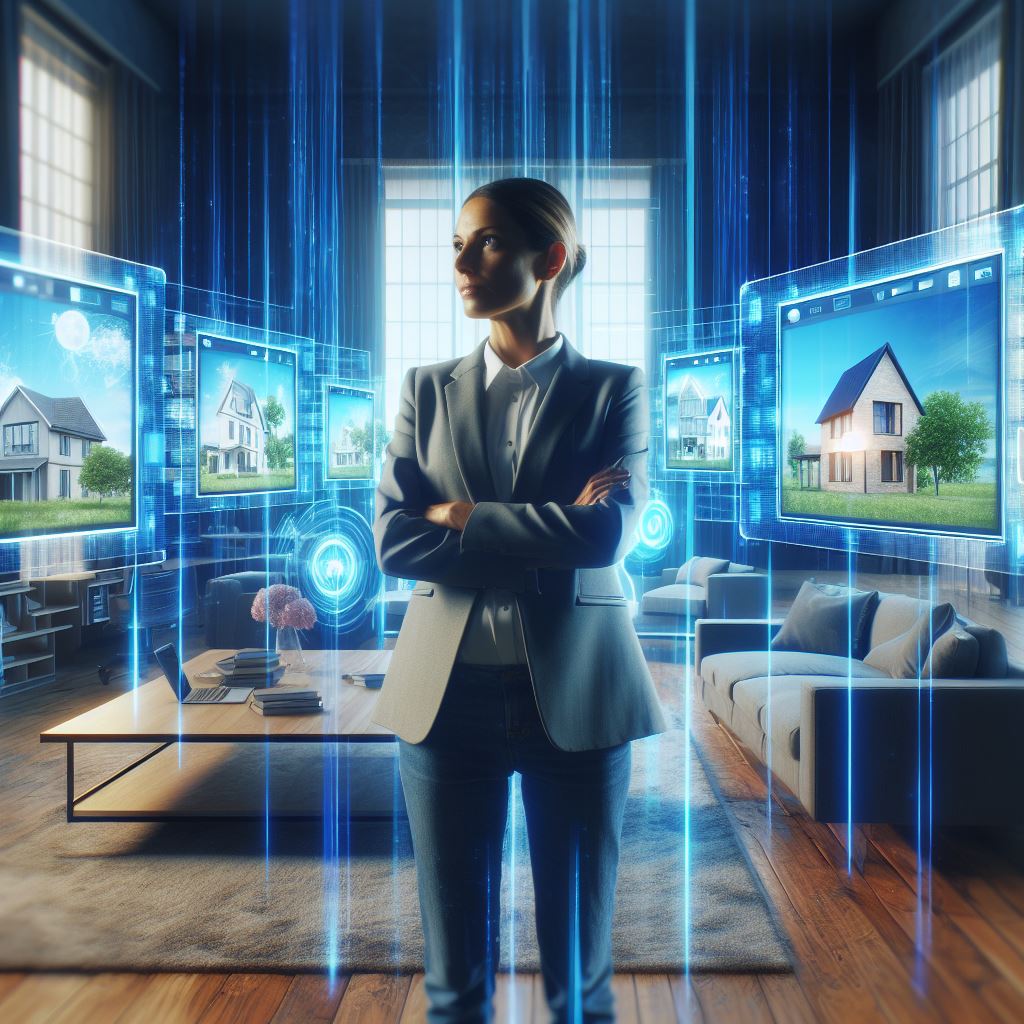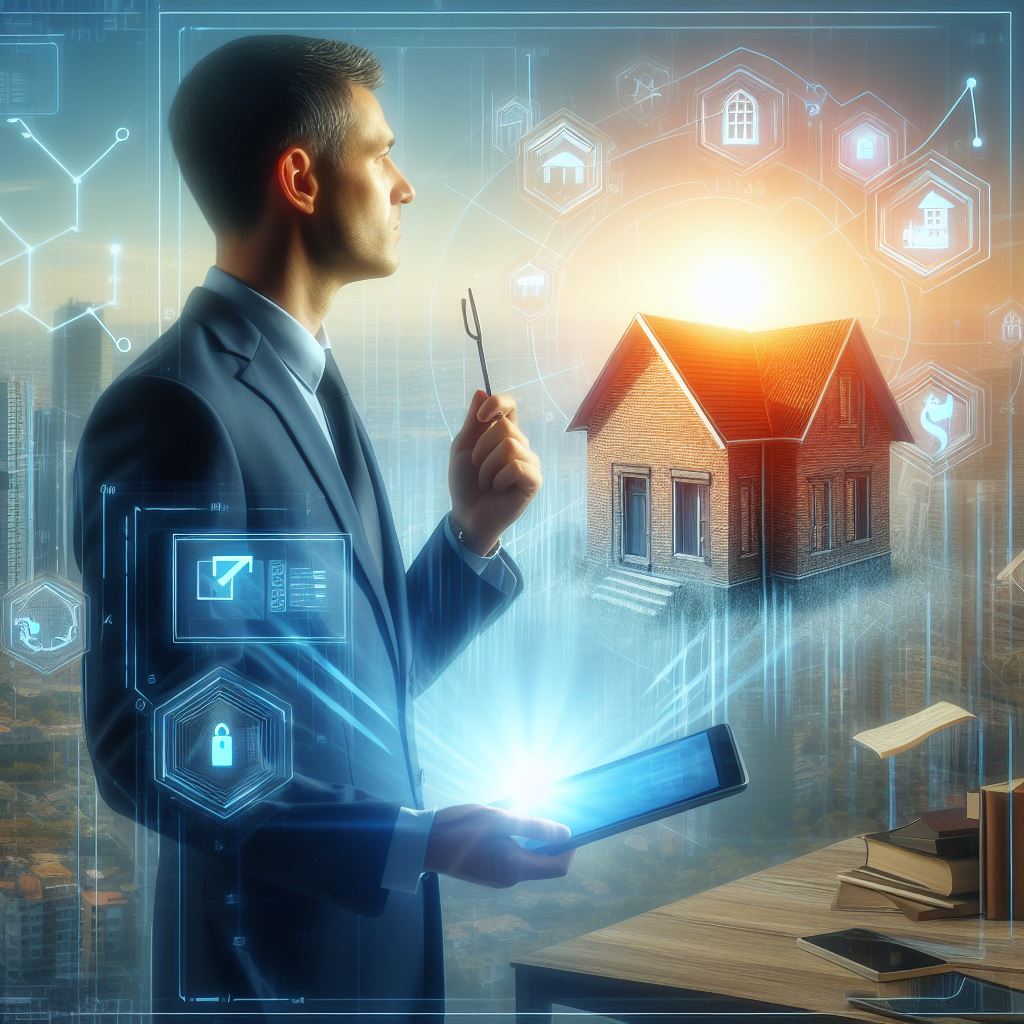Introduction
Tech-driven property management solutions encompass the utilization of innovative technologies such as artificial intelligence, automation, and data analytics to improve property management practices.
These solutions play a vital role in the real estate industry by revolutionizing traditional methods.
Technology has become increasingly important in the real estate sector due to its ability to simplify and expedite various processes.
From listings and tenant screening to lease agreements and maintenance requests, technology streamlines operations, saving time and resources for property managers.
This blog post intends to shed light on the advantages of implementing tech-driven property management solutions.
It will explore how technology enables property managers to automate tasks, enhance communication with tenants, and optimize property performance.
Moreover, it will discuss the positive impact on tenant satisfaction and the potential for cost savings.
By understanding the potential of technology in property management, professionals in the real estate industry can leverage these solutions to improve their operations.
Additionally, property owners can benefit from increased efficiency and profitability.
In essence, technology plays a pivotal role in the modern real estate industry.
Tech-driven property management solutions enhance efficiency, optimize property performance, and ultimately lead to a more streamlined and profitable property management process.
Stay tuned for the upcoming sections where we delve deeper into the various applications and benefits of these solutions.
Overview of Property Management Challenges
Traditional property management methods
- Property managers traditionally rely on manual methods and paperwork to manage properties.
- This involves tasks such as sending and receiving paper invoices, managing tenant requests, and tracking maintenance.
- These manual processes are time-consuming, inefficient, and prone to errors.
Limitations and shortcomings of traditional approaches
- Manual methods often lead to delays in communication between property managers and tenants.
- Errors in data entry can occur, resulting in incorrect accounting and reporting.
- There is a lack of real-time visibility, making it difficult to track property performance and financials.
- Property managers struggle to scale their operations due to the limitations of manual processes.
Need for technology-driven solutions
- Technology-driven property management solutions aim to overcome the limitations of traditional approaches.
- These solutions leverage cutting-edge technologies such as automation, artificial intelligence, and cloud computing.
- Automated processes streamline tasks like rent collection, maintenance requests, and lease management.
- Artificial intelligence enhances decision-making by analyzing data and providing valuable insights.
- Cloud computing enables real-time access to data, allowing property managers to make informed decisions on the go.
Benefits of Technology-Driven Property Management Solutions
Implementing technology-driven property management solutions offers several benefits for property managers:
- Efficiency and Time Savings: Automation eliminates manual paperwork, freeing up time for more value-added tasks.
- Improved Communication: Technology ensures seamless and prompt communication between property managers and tenants.
- Accurate Accounting and Reporting: Automated systems minimize human errors, resulting in accurate financial records and reporting.
- Real-time Visibility: Cloud-based platforms provide property managers with instant access to property performance data.
- Enhanced Decision-Making: Artificial intelligence tools analyze data to provide valuable insights for informed decision-making.
- Scalability and Growth: Technology-driven systems allow property managers to easily scale their operations as their portfolios expand.
Leading Technology-Driven Property Management Solutions
Several tech companies have emerged to revolutionize property management with their innovative solutions:
- Appfolio: Offers a comprehensive property management solution with features like online rent payments and maintenance requests.
- Buildium: Provides cloud-based property management software for residential property managers.
- Yardi: Offers a suite of property management software designed for residential, commercial, and industrial properties.
- Propertyware: Provides a complete property management solution with features for maintenance, accounting, and tenant portals.
- Rent Manager: Offers a fully customizable property management software for residential and commercial properties.
Traditional property management methods are no longer sufficient to meet the demands of today’s fast-paced and competitive industry.
Technology-driven solutions have emerged as the answer to the inefficiencies and limitations of manual processes.
By embracing these solutions, property managers can enhance efficiency, improve communication, and make data-driven decisions, ultimately leading to better property performance and growth.
Read: Innovative Apps Transforming Real Estate Now
Key Features of Tech-Driven Property Management Solutions
Tech-driven property management solutions come with a range of key features that revolutionize the industry.
From automating routine tasks to streamlining communication and enabling data-driven decision-making, these solutions empower property managers to optimize their operations and enhance their overall efficiency.
Automation of routine tasks
Automation of routine tasks has been one of the most significant advantages of tech-driven property management solutions.
Rent collection, which traditionally involved manual efforts, can now be automated through online payment platforms.
This streamlines the process, ensuring timely payments and reducing the administrative burden on property managers.
Similarly, maintenance requests can be efficiently managed through these solutions.
Tenants can submit requests online, and property managers can easily track and assign them for maintenance personnel to address.
This not only speeds up the resolution process but also improves tenant satisfaction.
Lease management is another aspect where tech-driven solutions excel.
By automating lease-related reminders, property managers are alerted when leases are due for renewal or termination.
This eliminates the risk of missing critical deadlines and ensures smooth tenancy transitions.
Streamlining communication
In addition to automation, tech-driven property management solutions streamline communication.
With features like tenant portals or mobile apps, tenants can easily communicate with property managers, report issues, or inquire about rental-related matters.
This fosters better tenant-landlord relationships and enhances overall customer experience.
Effective communication with property owners is also facilitated by these solutions.
Property managers can provide real-time updates on property performance, financial reports, or rental income through online dashboards or automated reports.
This transparency builds trust and strengthens the relationship between property managers and owners.
Data-driven decision-making
Data-driven decision-making is another significant advantage of tech-driven property management solutions.
By analyzing market trends, property managers gain insights into rental demand, occupancy rates, or rental prices in the area.
This information helps in setting competitive rental rates and attracting quality tenants.
Moreover, the analysis of maintenance patterns allows property managers to identify recurring issues and take proactive measures for preventive maintenance.
By addressing issues before they become major problems, property managers can reduce repair costs, extend asset lifespans, and improve overall property value.
In short, tech-driven property management solutions offer a comprehensive set of key features that transform the way properties are managed.
From automating routine tasks to streamlining communication and enabling data-driven decision-making, these solutions empower property managers to enhance their efficiency, provide better tenant experiences, and optimize their investment returns.
Read: AI in Real Estate: Changing Market Dynamics
Benefits of Tech-Driven Property Management Solutions
Property management has significantly evolved in recent years with the integration of technology-driven solutions.
These advancements have proven to bring numerous benefits and advantages to property owners and managers.
Enhanced efficiency and productivity
One of the key advantages of tech-driven property management solutions is the enhanced efficiency and productivity they offer.
Tasks that were once manual and time-consuming can now be automated and completed in a fraction of the time.
Automated maintenance requests and work order processing streamline the workflow, reducing time spent on administrative tasks.
Online payment portals enable quick and secure rent collection, eliminating the need for manual tracking and handling of funds.
Automated tenant screening processes ensure that suitable tenants are selected efficiently, saving valuable time in the screening stage.
Improved tenant satisfaction
Tech-driven property management solutions greatly contribute to improved tenant satisfaction levels.
These solutions provide a seamless and convenient experience for tenants, resulting in increased tenant loyalty and a positive reputation for the property.
Online portals allow tenants to easily submit maintenance requests and track their progress, providing prompt responses and resolutions to their concerns.
Real-time communication channels facilitate quick and efficient communication between property managers and tenants, ensuring their needs are met promptly.
Mobile apps provide accessibility and convenience for tenants to perform various tasks such as paying rent and accessing property information on the go.
Streamlined financial management
Tech-driven property management solutions simplify and streamline financial management processes, ensuring accurate and efficient handling of financial data.
Automated rent collection systems reduce the chances of human error and eliminate the need for manual tracking and recording of payments.
Accounting software integration allows for real-time tracking of income and expenses, providing a clear and accurate overview of the property’s financial health.
Online financial reporting and analytics provide comprehensive insights into the property’s financial performance, enabling informed decision-making.
Lower operational costs
Tech-driven property management solutions have the potential to significantly lower operational costs for property owners and managers.
Automated processes reduce the need for additional staff, saving on labor costs.
Efficient maintenance management minimizes expenses by addressing potential issues promptly, preventing costly repairs in the long run.
Online advertising and marketing platforms reduce expenses associated with traditional advertising methods.
Real-time access to property information
Tech-driven property management solutions provide real-time access to essential property information, empowering property owners and managers with valuable insights and data.
Cloud-based platforms allow access to property data from anywhere at any time, providing flexibility and convenience.
Real-time analytics and reporting enable informed decision-making based on up-to-date information.
Smart devices and IoT integration offer real-time monitoring of property conditions, ensuring proactive maintenance and prompt responses to issues.
In general, tech-driven property management solutions bring a multitude of benefits to property owners and managers.
Enhanced efficiency, improved tenant satisfaction, streamlined financial management, lower operational costs, and real-time access to property information are just some of the advantages these solutions offer.
Implementing these technologies can revolutionize the property management industry and contribute to the success and growth of properties in today’s digital era.
Read: Virtual Tours: The New Face of Home Buying

Popular Tech-Driven Property Management Solutions
Cloud-based property management software
Features and benefits
Cloud-based property management software is revolutionizing the way property managers handle their daily tasks.
With this software, property managers can access all relevant information and tools online, eliminating the need for physical paperwork and manual processes.
Some key features of cloud-based property management software include:
- Centralized data storage: All property-related information, including tenant details, lease agreements, and maintenance records, are stored in a secure cloud-based database.
- Online rent collection: Property managers can set up online payment portals, allowing tenants to conveniently pay their rent electronically.
- Automated communication: The software enables automated communication with tenants for rent reminders, lease renewals, and maintenance updates.
- Real-time reporting: Property managers can generate reports on various aspects of their properties, such as financial performance, occupancy rates, and maintenance requests.
By adopting cloud-based property management software, property managers can streamline their operations, improve efficiency, and enhance tenant satisfaction.
Examples of popular software
There are several cloud-based property management software options available in the market, each offering unique features and benefits.
Here are some popular examples:
- AppFolio: This software provides comprehensive management solutions for residential, commercial, and student housing properties.
- Buildium: Designed specifically for small to mid-sized property management companies, Buildium offers tools for accounting, leasing, and maintenance.
- Yardi: Yardi is a widely used property management platform that caters to various sectors, including residential, commercial, and affordable housing.
Internet of Things (IoT) applications for property management
Smart home technology
The Internet of Things (IoT) has made significant strides in the property management industry, particularly with the advent of smart home technology.
Smart home devices, such as smart thermostats, door locks, and security systems, can be integrated into property management systems to provide numerous benefits.
With IoT-enabled smart home technology:
- Tenants can remotely control their homes’ temperature, lighting, and security using their smartphones.
- Property managers can monitor energy usage, enabling them to identify opportunities for energy conservation and cost reduction.
- Automated alerts can be set up to notify property managers of any maintenance issues, such as leaks or HVAC problems.
Energy management systems
Property managers can also leverage IoT-based energy management systems to optimize resource usage and reduce utility costs.
These systems use sensors, meters, and analytics to monitor energy consumption patterns and identify areas of inefficiency.
Benefits of energy management systems in property management:
- Energy consumption data can be analyzed to pinpoint anomalies and implement energy-saving measures.
- Automated controls can adjust lighting and HVAC systems based on occupancy, reducing energy waste.
- Real-time monitoring allows property managers to identify malfunctioning equipment and take prompt action to avoid costly repairs.
The integration of IoT applications in property management offers enhanced convenience, energy efficiency, and cost savings.
Overall, the adoption of tech-driven property management solutions like cloud-based software and IoT applications has proven to be highly valuable for property managers.
These solutions streamline processes, improve efficiency, and enhance the overall tenant experience.
As technology continues to advance, property managers should stay up-to-date with the latest trends to maximize their operations and stay ahead in the competitive property management industry.
Read: Digital Leasing: The Future of Renting Homes
Challenges and Risks of Adopting Tech-Driven Solutions
Initial costs and investments
Adopting tech-driven solutions in property management can revolutionize the way we operate.
However, these solutions bring their own set of challenges and risks.
The initial costs and investments required can be substantial, including purchasing hardware, software, and licensing fees for specialized systems.
Property managers need to carefully plan their financials to ensure the sustainability of this investment.
Technical challenges and system integration
Another challenge is the technical aspects and system integration. Integrating diverse tech systems can be complex and time-consuming.
Compatibility issues may arise when connecting existing property management software to new platforms.
Furthermore, there is always a risk of technical glitches and system failures that could disrupt property operations.
Regular maintenance and updates are essential to address these challenges and ensure a seamless integration of technologies.
Data privacy and security concerns
Data privacy and security concerns are also significant when adopting tech-driven solutions.
As property managers store and manage large volumes of data, privacy risks arise.
It becomes crucial for property managers to establish robust security measures to safeguard sensitive information.
The threat of cybersecurity attacks, such as hacking and data breaches, is a constant concern.
Compliance with data protection regulations, especially the General Data Protection Regulation (GDPR), adds complexity and potential legal consequences.
Staff training and adaptation
Staff training and adaptation pose another challenge. Implementing tech-driven solutions requires training property management staff on new software and systems.
Employees may face difficulties in adapting to unfamiliar technologies, potentially affecting their productivity during the transition period.
Property management staff requires dedicated time and resources to learn and understand the functionalities of the newly adopted systems.
Ongoing training and support are necessary to maximize the efficiency and effectiveness of the technology.
Despite the challenges and risks, the benefits of adopting tech-driven property management solutions outweigh the initial hurdles.
Improved efficiency, streamlined processes, and enhanced tenant experience can be achieved through the right implementation of technology.
Property managers must carefully evaluate the costs, technical implications, data security measures, and training needs to mitigate risks and maximize the potential benefits of tech-driven solutions.
Case Studies and Success Stories
Real-life examples of companies implementing tech-driven property management solutions
In 2017, Stewart Properties utilized a mobile app to streamline rent collection and maintenance requests.
Well Springs Real Estate adopted a cloud-based platform that enabled them to track property performance and analyze market data.
Micah Hopkins Investments implemented IoT technology to monitor energy usage and optimize building efficiency.
Positive outcomes and improvements achieved
Stewart Properties reduced late rent payments by 30% and improved tenant satisfaction by offering convenient digital solutions.
Well Springs Real Estate increased their revenue by 15% after identifying market trends and adjusting their property pricing strategy.
Micah Hopkins Investments saved 20% on energy costs by implementing smart sensors and automated controls.
Lessons learned and best practices for successful implementation
- Prioritize understanding the unique needs and challenges of your property management business.
- Research and evaluate different tech solutions to find the ones that align with your goals.
- Involve key stakeholders in the decision-making process to ensure successful buy-in and adoption.
- Plan and communicate clearly the implementation process, including training and support for employees.
- Start with pilot projects or small-scale implementations to minimize risks and identify areas for improvement.
- Regularly assess the effectiveness of the implemented solutions and make necessary adjustments.
- Stay updated on technological advancements and explore new opportunities for further optimization.
- Collaborate with industry experts, attend conferences, and join relevant communities for knowledge sharing.
From the case studies mentioned above, it is evident how various companies have successfully implemented tech-driven property management solutions to enhance their operations and achieve positive outcomes.
Stewart Properties leveraged a mobile app to streamline rent collection and maintenance requests, resulting in reduced late payments and improved tenant satisfaction.
In a nutshell, real-life case studies demonstrate the success achieved by companies adopting tech-driven property management solutions.
The positive outcomes include improved tenant satisfaction, revenue growth, and cost savings.
By following best practices and lessons learned, property management businesses can achieve similar success in their own implementations.
Embracing technology is crucial in today’s fast-paced world, and those who adapt and innovate will excel in the industry.
Conclusion
Recap of key points discussed in the blog post
Throughout this blog post, we have explored the benefits and advantages of tech-driven property management solutions.
We discussed how these solutions can streamline processes, increase efficiency, and improve tenant experiences.
Additionally, we highlighted the various technologies available, such as property management software, smart home systems, and virtual reality tours.
Reiteration of the significance of tech-driven property management solutions
It is crucial to recognize the significance of embracing tech-driven property management solutions in today’s real estate landscape.
These advancements have the potential to revolutionize the way property professionals operate, allowing them to stay ahead of the competition and meet the evolving needs of tenants and property owners.
Encouragement for real estate professionals to explore and embrace technology advancements in their property management practices
Moving forward, we strongly encourage real estate professionals to actively explore and embrace technology advancements in their property management practices.
By investing in the right solutions and staying up to date with the latest trends, professionals can enhance their operations, attract more clients, and ultimately achieve greater success in the industry.
Tech-driven property management solutions offer a wide range of benefits for both property managers and tenants.
From streamlining operations to improving tenant satisfaction, the integration of technology is a game-changer in the real estate industry.
It is now more important than ever for professionals to adapt and embrace these advancements to ensure their long-term success.
So, don’t be afraid to explore and leverage technology in your property management practices.
Embrace the future and unlock the full potential of tech-driven property management solutions.




